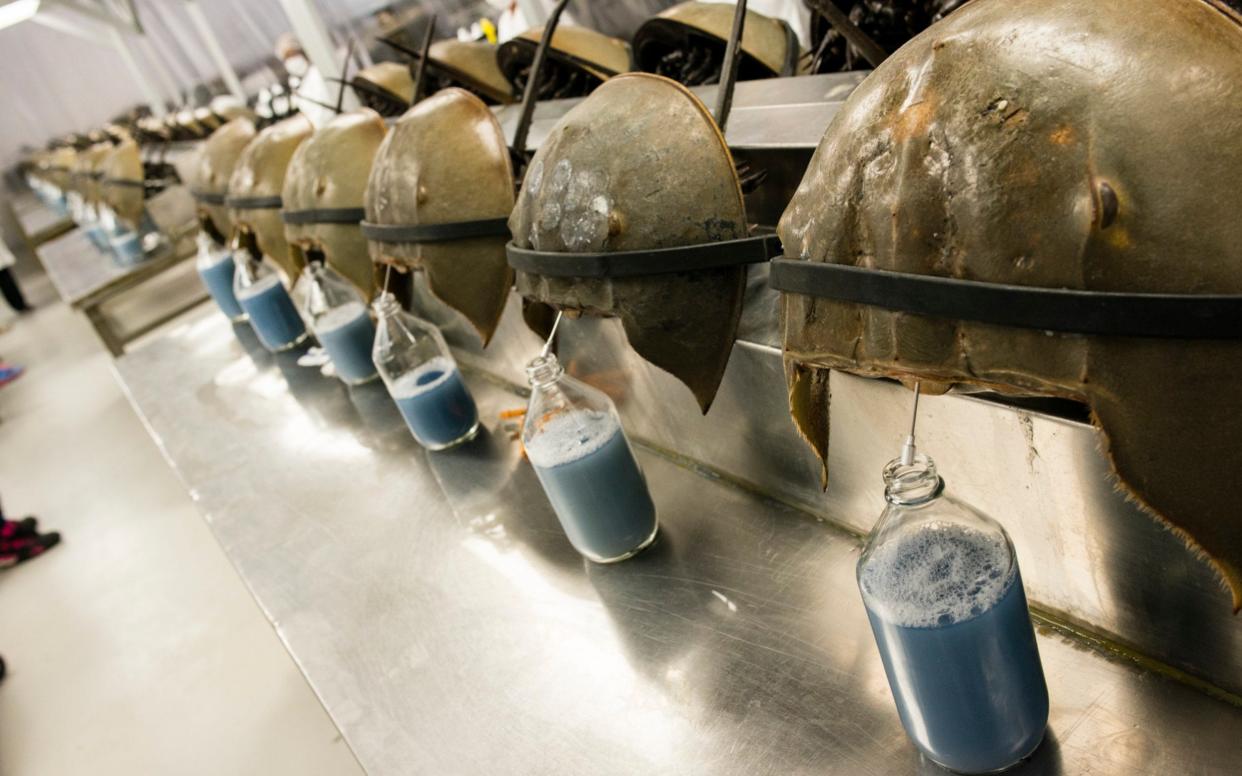Covid-19 vaccine will rely on blood taken from horseshoe crabs

A Covid-19 vaccine will save millions of lives, but it could have a surprising collateral: horseshoe crabs whose blood will be used to test the safety of the medicine.
Horseshoe crabs, which are found on the coasts of Northeast America and South Asia have been around for 450 million years and are more closely related to spiders than crustaceans.
But their numbers have dropped dramatically in recent years, thanks in part to the pharmaceutical industry’s harvesting of the animals for their unusual blue blood.
The blood contains limulus amebocyte lysate, a substance that can be used to detect toxins, a process vital to the production of vaccines and other pharmaceuticals.
As the only natural source of lysate, the pharmaceutical industry depends on 500,000 horseshoe crabs being bled every year in a process similar to giving blood.
The crabs are put back into the ocean alive around two days later, but little is known about the long-term effects, with studies suggesting between 3 and 30 per cent of the crabs die as a result.
There are also indications that the process could be detrimental to their ability to reproduce. Numbers of horseshoe crabs off the coast of Delaware Bay in northern US have dropped from 1.24m in 1990 to around 330,000 last year.
On the Guangxi Coast of China, where horseshoe crabs are also eaten, numbers have dropped from around 700,000 breeding pairs to as little as 40,000.
When it comes to the production of a Covid-19 vaccine, “my concern is about the population of the horseshoe crabs because they’re such a key part of the ecosystem,” Barbara Brummer, the State Director of The Nature Conservancy in New Jersey told BBC Radio 4.
Birds such as the red knot or the semipalmated plover rely on horseshoe crabs for food.
Conservationists are calling on the pharmaceutical industry to embrace the use of a synthetic alternative known as recombinant factor C (rFC), which would end the reliance on horseshoe crabs.
The European pharmaceutical regulator last week approved the use of rFC, which was first developed in the early 2000s, as an alternative test for bacterial contamination.
But its widespread use has been hampered by a ruling in June from the US regulator, which ruled that any pharmaceutical companies that want to use it instead of the natural alternative would be required to do extra tests.
Watch the latest videos from Yahoo UK

 Yahoo News
Yahoo News 
